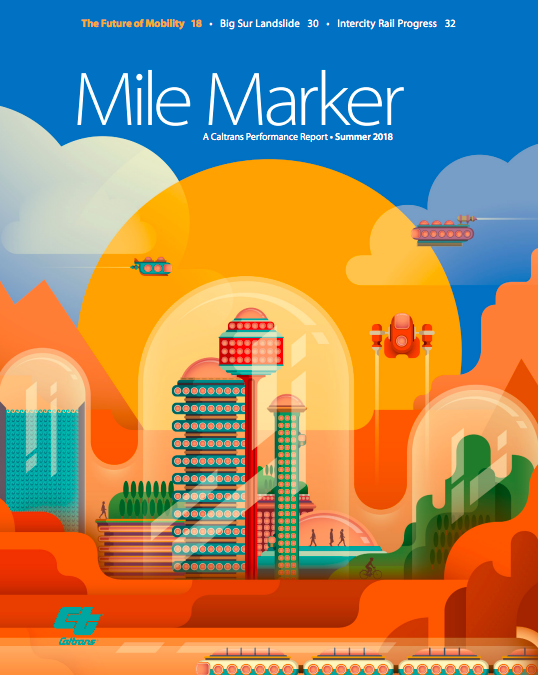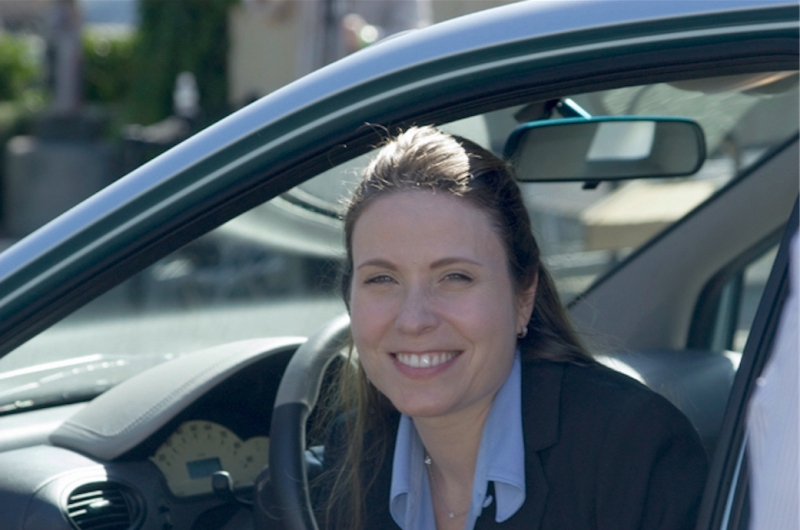
by Innovative Mobility Research | Jun 4, 2019 |
ITS Berkeley June 4, 2019 Congratulations to Transportation Sustainability Research Center Co-Director and Civil and Environmental Engineering professor Susan Shaheen, Professor Emeritus of City and Regional Planning Robert Cervero, and former graduate students Lisa Rayle (Data Science at Facebook), Danielle Dai (City of Oakland Mobility Programs Manager), and Nelson Chan (Interaction Designer at Internet Brands/WebMD) on earning the Transport Policy Prize from the World Conference on Transportation Research (WCTR). The Transport Policy Prize for the most influential Paper is in recognition of the most influential paper published in the Transport Policy Journal during the last three years preceding the conference, and is only awarded every three years. It is chosen by a Sub-Committee of WCTRS comprised of all the editors of Transport Policy and the Chair of the WCTRS Prize Committee. The Editor in Chief serves as chairperson for the Sub-Committee. The journal article from article in Transport Policy (published in 2016), “Just a Better Taxi? A Survey-Based Comparison of Taxis, Transit, and Ridesourcing Services in San Francisco” presents…. Read the full article here: TSRC Study Earns Transport Policy...

by Innovative Mobility Research | Apr 23, 2019 |
Susan Shaheen April 23, 2019 With carsharing, individuals gain the benefits of private-vehicle use without the costs and responsibilities of ownership. One-way (or point-to-point) carsharing is a form of carsharing that enables members to pick up a vehicle at one location and drop it off at another. Typically, the carsharing operator provides gasoline, parking, and maintenance. Generally, participants pay a fee each time they use a vehicle. A few popular free-floating carsharing services include: Car2go and DriveNow, recently joined forces to become SHARE NOW – a new joint venture between Daimler AG and BMW Group that consists of a connected ecosystem of five mobility solutions: one-way carsharing, transportation network companies (TNCs, also known as ridesourcing and ridehailing), multimodal trip planning, parking, and charging. The service includes more than 20,000 carsharing vehicles worldwide (including 3,200 electric vehicles) in 30 cities and 13 countries. Under this new joint venture, ReachNow, which operates carsharing and TNC services in Seattle and Portland, also joined forces with moovel to become REACH NOW, the multimodal unit of the joint venture. Ten percent of ReachNow’s fleet is electric with 720,000 electric vehicle (EV) miles driven in less than two years. Twenty-five percent of members have driven electric, which have saved more than 200+ tons of carbon dioxide (CO2). Zipcar Flex – a free floating carsharing service comprised of approximately 300 EVs in London, UK. EVO carsharing operates a free-floating carsharing program in Vancouver, Canada using hybrid vehicles. These are just a few examples of the numerous carsharing programs operating across the globe…. Read the full article here:...

by Innovative Mobility Research | Jul 25, 2018 |
Mile Marker Summer 2018 Study Looks at How We’ll Get From Here to There as Caltrans Plans for Future. New technology, evolving economic and societal directions, and a changing climate are creating a seismic shift in the way California moves people and goods — and that makes transportation planning particularly challenging. A new study commissioned by Caltrans suggests that the field of transportation is in the midst of a transformation not experienced since the invention of the automobile. There are many intriguing possibilities and trends emerging, according to the Future of Mobility White Paper, which is intended to inform Caltrans planners who will lay the groundwork for California’s transportation network into 2050. “The rapid changes in the transportation industry will dramatically alter California’s transportation system and affect the way Caltrans operates,” said Chris Schmidt, Caltrans’ Division Chief of Transportation Planning. “The Department will have to develop and implement realistic policies while taking into account rapidly changing technological advancements, many of which continue to evolve and new ones emerge.” The revolution in moving people and goods has already arrived. In just the last five years, ride-sourcing companies such as Uber and Lyft, car-sharing services like Getaround and car2go, and bike-sharing businesses such as Spin and Ford GoBike have expanded market share. Autonomous vehicles are a reality, drones and self-driving trucks could shake up the goods-moving industry, and technologies considered unthinkable a decade ago — such as hyperloop and air taxis — are no longer just science fiction imagination. Not only are modes of transportation changing, but major advancements have been made in vehicle safety technology. The refinement of on-board cameras,...

by Innovative Mobility Research | Apr 8, 2018 |
April 5, 2018 Edited by CALCOG Shared mobility—the shared use of a motor vehicle, bicycle, or other mode that allows users to obtain short-term access to transportation on an as-needed basis—can have implications on access and mobility for users in terms of transportation equity. A maxim often drawn from the sermons of Dr. Martin Luther King is that “our lives begin to end the day we become silent on things that matter.” As our transportation industry faces disruptions from sharing, automated, and electric vehicles along with other Mobility on Demand (MOD) providers, we must remain vigilant to providing fair access to our evolving transportation systems. Shared mobility has the promise of improving access to our jobs, healthcare, goods and services, and social connections. There is reason to be optimistic about the potential shared mobility services have to bridge equity gaps in a rapid, cost-efficient manner. It can improve mobility for those who are unable to access private vehicles and encourage more shared trips, potentially reducing household expenditures, vehicle miles traveled, and greenhouse gas emissions. Read the full tex...

by Innovative Mobility Research | Feb 1, 2018 |
February 1, 2018 By: JACK STEWART The term “livable city” has been kicking around since the 1980s, but it’s never had much of a definition. It’s clearly a good thing for attracting residents, businesses, and investors. Yet depending on who wants to live how and where, it entails elements of mobility and sustainability, investment and entrepreneurship. Today, 15 tech companies devoted to reshaping the way we move came together to define the euphemism. These ride-sharing, bike-sharing, and transit companies signed a joint pledge to “prioritize people over vehicles”, lower emissions, encourage data sharing, and other lofty goals that should make cities nicer places to live—if everyone can just get on board. The “Shared Mobility Principles for Livable Cities” is the work of Zipcar co-founder Robin Chase, along with a group of city and transport organizations. They’re heavy on future-gazing talking points. The word mobility comes up a lot. “For most cities, urban planners, legislators and residents, there is a cacophony of advice,” says Chase. She wants the shared principles to cut through it all with simple, sensible guidelines. Read the rest of the article...






